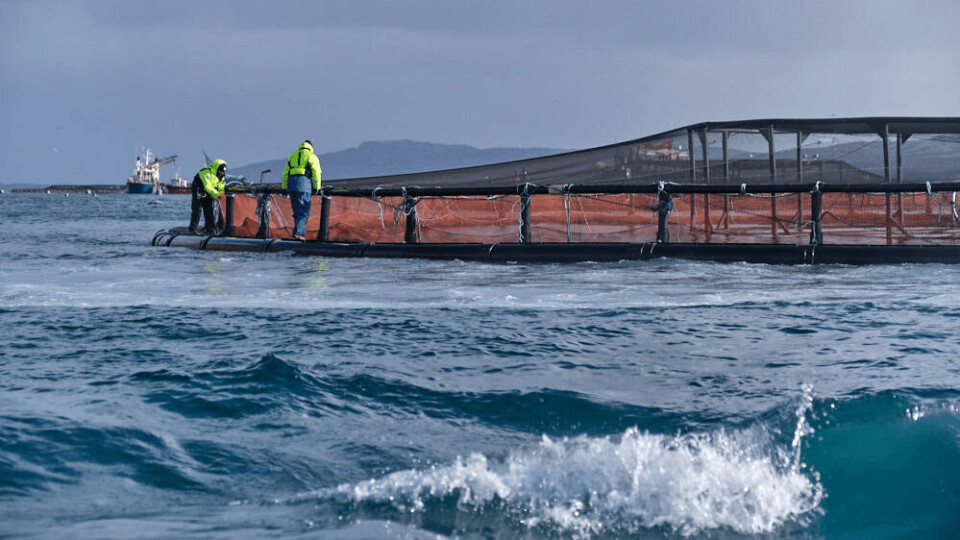
Post-Brexit delays ‘causing reputational damage’
Tavish Scott, chief executive of the Scottish Salmon Producers’ Organisation (SSPO), has again urged the UK Government to fix post-Brexit export problems which farmers say have caused reputational damage due to unreliable delivery times.
Scott wants a return to the pre-Brexit situation where salmon harvested at some Scottish sites just after midnight on one day would be on sale at seafood markets in Boulogne-Sur-Mer in France in the small hours of the next morning.
Currently, delays in issuing Export Health Certificates (EHCs) at transport company DFDS’s distribution hub at Larkhall in central Scotland and at the UK-French borders mean that fish harvested on Day 1 don’t reach France until Day 3.

Bureaucracy and barriers
“We continue to call on the UK Government to do everything within its power to minimise bureaucracy and non-tariff barriers with the aim of securing an acceptable ‘new normal’ of Day 1 for Day 2 delivery and a streamlined system to deal with additional bureaucracy for UK-EU trade arising from EU exit,” said Scott.
“Moreover, the UK Government should make good on its intentions to deliver the ‘world’s most effective border by 2025’. We have also asked for the UK Government to negotiate a ‘grace period’ to phase in new paperwork requirements – akin to those secured for goods movements between the British mainland and Northern Ireland - in the recent past. We would continue to urge the UK Government to consider this.
“Scottish salmon is unique in terms of the combination of premium quality and efficiency of supply chain so that it reaches markets and consumers in pristine condition. Smooth and efficient trade links are vital in maintaining salmon (and other fresh/perishable seafood) at the forefront of the UK’s food exports.”
Government inquiry
The SSPO today submitted evidence to a UK Government inquiry on “Seafood and Meat Exports to the EU” assessing the effects of Brexit on trade with Europe.
The SSPO said Scotland’s salmon farmers prepared extensively to ensure they were ready for the post-Brexit trading arrangements that came into force on January 1. SSPO member companies’ initial problems arose from being grouped in with other parts of the seafood sector who were less ready to deal with the complex export paperwork requirements and a lack of efficiency in processes at distribution hubs.
This has subsequently been exacerbated by IT system failures, problems with communications between some hauliers, certifiers and exporters, inconsistency at Border Control Posts (BCPs), and a lack of knowledge and understanding of post-Transition Period requirements from EU-based traders.
More delays mean lower prices
The SSPO said this disruption has resulted in several negative impacts. There is evidence of reputational damage to the sector arising from delays and what producers hope will be a temporary reduction in the reliability in delivery times. More commonplace is a general reduction in prices as premiums are closely linked to freshness and thus timely delivery. The full impact in cost terms to Scotland’s salmon farmers is still not known.
The SSPO said it is confident that if these problems can be resolved, sales and revenue values will return to pre-Brexit and pre-Covid levels with room for further growth. However, this will only be achieved with the increased costs and complexities brought about by non-tariff barriers, which ultimately impacts profits.























































